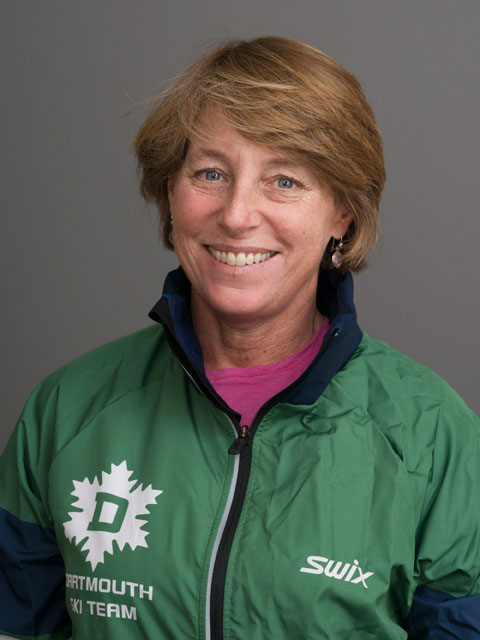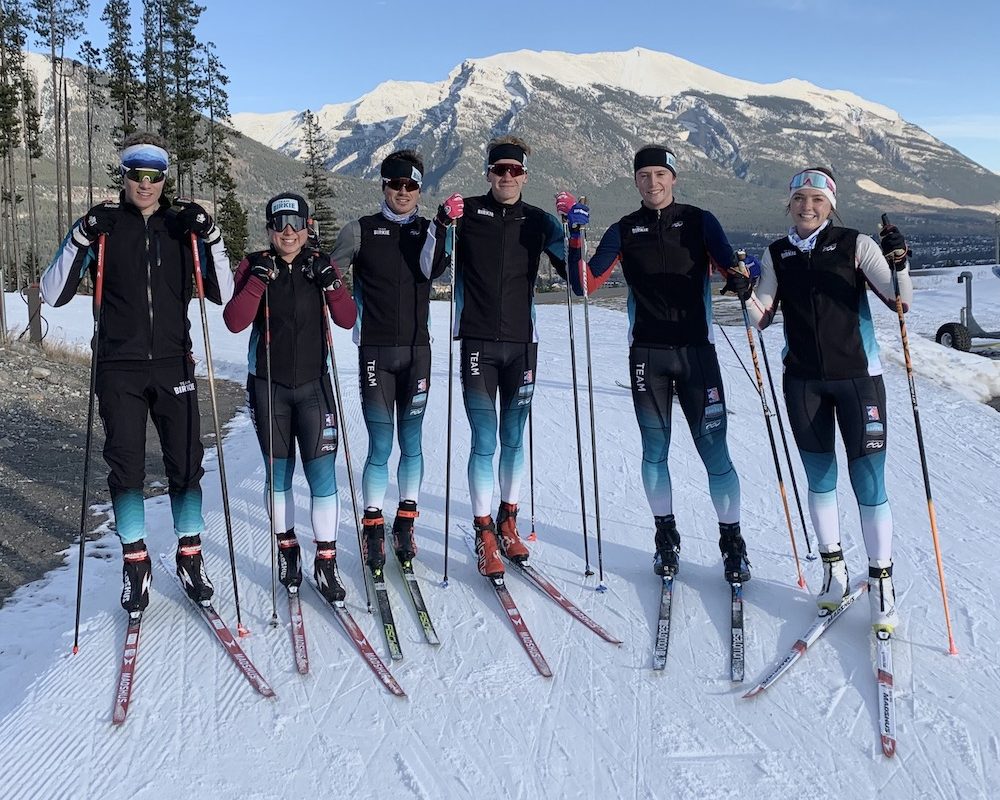
Athletics have always played a central role in Cami Thompson-Graves’ life.
Growing up, the Stowe, Vt., native embodied her passion for sport by skiing and playing field hockey and tennis.
At St. Lawrence University she studied physical education and upon graduation continued a skiing career that took her to the U.S. Ski Team (USST) and the 1985 World Championships in Seefeld, Austria.
However, once Thompson-Graves finished a two-year stint on the USST, she took a development coaching job at Dartmouth in 1988 in hope of sharing her love of sport with aspiring college athletes.
Twenty-six years later, Thompson-Graves is the women’s coach of one of the most esteemed college ski teams in the country. Her quarter century of coaching makes her the longest-serving female head coach on the collegiate circuit.
Over the years she and men’s coach Ruff Patterson, have led their team to countless all-American honors and top finishes at the NCAA Championships. In 2007 Thompson-Graves helped her team claim the NCAA Championship, marking the school’s first win since 1976 and notching the third-ever championship for the Big Green. In 2013, she won the honors of National and ESIA Intercollegiate Coach of the Year.
As if that weren’t enough, many of Thompson-Graves’ skiers have gone on to achieve national and international acclaim. At the 2014 Olympic Games alone, five of her former athletes represented the U.S. in Sochi: USST members Sophie Caldwell (’12) and Ida Sargent (’11), and the U.S. Biathlon’s Susan Dunklee (’08), Sara Studebaker (’07), and Hannah Deissigacker (’09).
FasterSkier caught up with Thompson-Graves to reflect on the past quarter century of coaching and what inspires her to continue working with promising young skiers.
FasterSkier: When did you become interested in coaching and how did you end up at Dartmouth?
Cami Thompson-Graves: I went to St. Lawrence University and I studied physical education, mainly because I was an athlete in high school. I played field hockey, I played tennis, I skied, and had a lot of respect for the coaches in my life. I was interested in doing the same thing. As far as how I ended up at Dartmouth, I raced myself and when I finished racing I started looking for a job. The development coach position opened up here so I grabbed that and started. Then I got lucky and got the head coach job shortly thereafter.
FS: This seems like something you had been planning for a while.
CTG: When I went to school I had an open mind and was trying to decide if I was interested in business or what I wanted to do. Sports have always been a big part of my life and I grew up believing that if I set my mind to something I should be able to accomplish it. Sports have been an important part of my life and who I am so it’s great to be able to try and pass that on to other people.

FS: What have been some highlights of your career at Dartmouth?
CTG: Winning the NCAA Championship in 2007 was definitely a highlight. We thought winning was not something we could accomplish because we don’t have scholarships here, it was our final exam period during the championships, and we didn’t have great snow that winter. But a lot of things came together so that was really exciting.
Certainly having five of my alumni skiers in Sochi last year was another highlight for me. I was really excited to see those girls out there who were racing hard and still so passionate about the sport.
FS: Speaking of alumni, the Dartmouth program has had a lot of its skiers find success after leaving school. What is it about that your team that attracts quality skiers and keeps them motivated once school is finished?
CTG: Something that we are really proud of here – and we reiterate year in and year out –is our ambition to help each individual skier achieve their goals. It’s a huge priority for us as a program to think big and think outside the box. We have an award that’s based on skiing as a way of life, and that’s something we live here every day. We spend a lot of time together as a team, we make some of the toughest sessions fun and worthwhile, and we encourage people to race in races that they haven’t participated in before. We try and create a culture that encourages people to keep going, think big, try harder, and do more.
It’s wonderful to have those athletes who continue to keep competing, but it’s also really cool to look around the room at coaches meeting at nationals. Many of the people in the room are our people who may have skied for us at some point and are still in the sport even if they are not racing.
FS: What’s kept you going throughout your coaching career?
CTG: I’m laughing because Thomas Alsgaard came here once and looked at Ruff and me and he said, ‘what are you still doing here? You’re old.’
You don’t stop learning. I didn’t learn everything I know about skiing when I was racing in the 80s. I’ve learned a lot along the way and it is still challenging and it is still fun. I feel like every year you grow as a coach or there’s some new thing, whether it’s hosting the NCAA championship, winning a Championship or having a particularly great group of people that love to work hard and train hard and race with passion. There’s always something to keep it interesting and fun.
FS: Do you have any plans for the future?
CTG: I love what I’m doing and I don’t see myself stopping anytime soon.
Lander Karath
Lander Karath is FasterSkier's Associate Editor from Bozeman, Montana and a Bridger Ski Foundation alumnus. Between his studies at Middlebury College in Vermont, he is an outdoor enthusiast and a political junkie.



